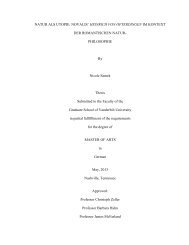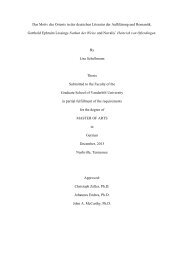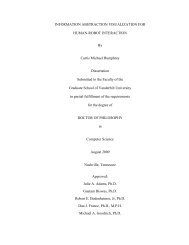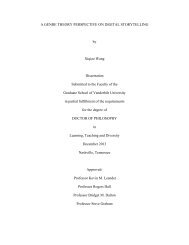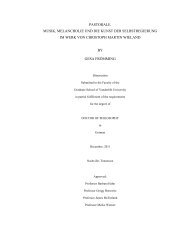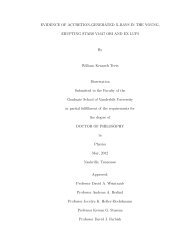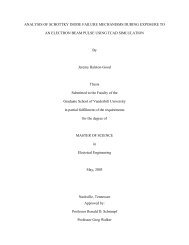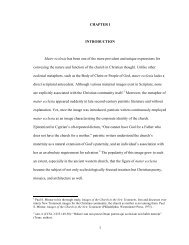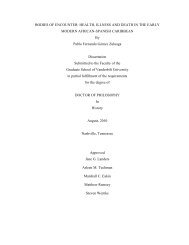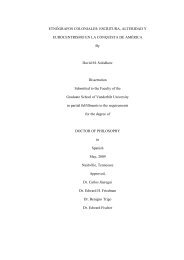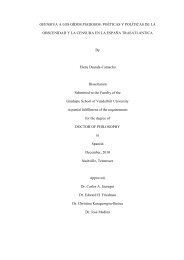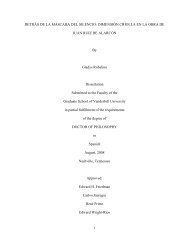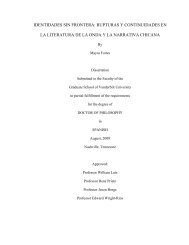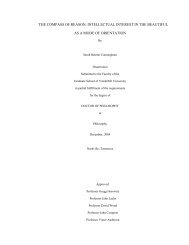THE DEATH OF DIONYSOS - ETD - Vanderbilt University
THE DEATH OF DIONYSOS - ETD - Vanderbilt University
THE DEATH OF DIONYSOS - ETD - Vanderbilt University
Create successful ePaper yourself
Turn your PDF publications into a flip-book with our unique Google optimized e-Paper software.
century as the new watchword of aesthetic humanism. 5 While Gadamer is deeply<br />
suspicious of Kantian aesthetics and its influence, he undertakes to demonstrate how terms<br />
such as Bildung exemplify the hermeneutic approach of the humanities to their truth, as<br />
distinct from the inductive methodology of the natural sciences. Of particular interest to<br />
us is Gadamer’s observation that, while the word Erlebnis emerged only after Goethe had<br />
died, his life, work, and language in many ways anticipated and called out for a new word<br />
to describe the human experience of life. Erlebnis in Gadamer’s analysis typifies a new<br />
Kantian value placed on the great individual, whose experience reflects solely on the<br />
unique character of his life, rather than on what is generally valid or common to all.<br />
Gadamer stresses that, unlike the universal validity of truth in the natural sciences,<br />
Erlebnis is characterized by the distinctly individual and personal nature of such<br />
experience; that the unique individual attracts, as it were, those experiences suited to his<br />
personality, while those foreign to his nature scarcely register at all. In this sense human<br />
consciousness as Gadamer describes it includes something like a customs official who<br />
keeps watch at the borderline of personal identity, and who diligently differentiates<br />
between those experiences that bear the visa stamp of individual character and may enter<br />
as qualified Erlebnisse, as opposed to those that are too foreign to be admitted at all.<br />
For us this means that we will have to look beyond the word Erfahrung and its<br />
knowledge in order to demarcate the full range and limits of Wilhelm Meister’s<br />
experience. We will be attentive to note those experiences to which he is receptive, as<br />
well as those he either rejects or scarcely perceives. Far more important for the purpose of<br />
this thesis will be an inquiry into the reasons why certain experiences are favored, while<br />
others are turned away at the port of entry into his mind. What makes Wilhelm Meister so<br />
interesting is the fact that the customs official of his consciousness is not yet fully trained;<br />
it still finds every newcomer very interesting and agreeable and welcomes him to the<br />
5 See Gadamer, Wahrheit und Methode:Grundzüge einer philosophischen Hermeneutik, 6 th ed.<br />
(Tübingen: J.C.B. Mohr, 1990), pp. 61-87.<br />
xiv



